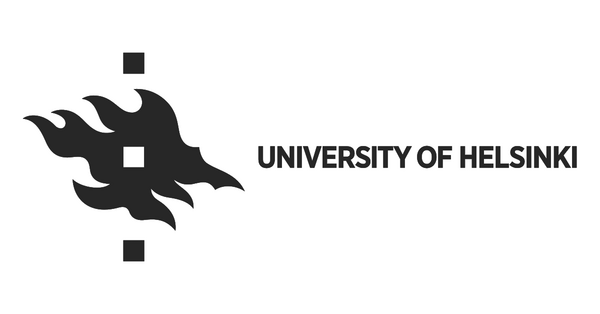University of Helsinki: A new book provides a unique perspective on the operations of the International Labour Organization
The book explores the challenges faced by the International Labour Organization, which recently celebrated its centenary, as well as its increasing importance and new opportunities.
President Tarja Halonen and Professor of Labour Law and International Private Law Ulla Liukkunen have co-edited the book entitled ‘International Labour Organization and Global Social Governance’, which is free to download on the publisher’s website.
The book delves into the operations of the International Labour Organization (ILO), an institution specialised in questions pertaining to the labour market, and its significance as an international regulator of labour and social conditions. While being inspired by the ILO’s centenary year 2019, the book nevertheless focuses particularly on present and future challenges, also outlining a potential path for the ILO and labour law to embark on.
““The book identifies central issues which the ILO should tackle to maintain its status as an organization essential in the setting of international labour norms. These are problems associated with globalisation and the labour market, as well as change in regulatory practices,” says Professor Liukkunen, summing up the book’s content.
The benefits engendered by globalisation on the one hand and workers’ rights on the other require a constant balancing act. The book examines the complex challenges that arise when international labour standards are applied in practice on various administrative levels and in greatly varying environments.
Strong nation states in a key position
President Halonen brought quite a rare perspective to the project: during her term as President of the Republic of Finland, she served as the co-chair of the World Commission on the Social Dimension of Globalization, established by the ILO, from 2002 to 2004 (the other co-chair was Benjamin William Mkapa, president of Tanzania at the time). The World Commission drew up a report on measures aimed at ensuring better and increasingly equal opportunities for more people to enjoy the benefits brought about by globalisation.
In the book, President Halonen expresses her view, from a contemporary vantage point, on what the World Commission was like and what its goals and effects were.
“The commission’s contribution has not been previously examined ‘from within’. In that regard, the book itself provides one-of-a-kind research material,” says Liukkunen, describing Halonen’s input.
Halonen writes of her personal experiences as co-chair of the ILO’s World Commission on the Social Dimension of Globalization. At the time, she held a unique position as a head of state who led the World Commission and influenced the ILO’s future-probing policies on how a sustainable social dimension could be established for globalisation.
The efforts of the World Commission had a significant impact on the ILO adopting the concept of ‘decent work’ in the 2000s. Decent work denotes work that is safe, ensures a fair income, does not discriminate against anyone and respects the right to organise. The concept of decent work should permeate all societies and take into consideration all individuals and every kind of work.
In her chapter, President Halonen emphasises that the regulation of globalisation stems from strong nation states. According to her, the relationship between globalisation and nation states must be improved from what it is currently. Making globalisation increasingly humane while maintaining its economic efficiency is possible only in a world of strong and democratic nation states that have a positive attitude toward international collaboration.
Fragmented labour market systems
In her chapter, Ulla Liukkunen examines the transformation of the ILO’s transnational environment and how new kinds of institutional structures are challenging the existing framework for the international regulation of labour. She believes that, by adopting decent work as its goal, the ILO has steered its agenda in the right direction.
“I think it’s important to add a transnational dimension to the ILO’s decent work agenda. In other words, the ILO cannot focus solely on the internal development of states. Instead, its agenda must increasingly consider cross-border regulatory activities and their consequences.”
As a researcher, Liukkunen has specialised in the transformation of collective agreement systems and the fragmentation of labour market systems in different countries – a trend observable in Finland as well.
“In Finland, the discussion on local bargaining often lacks an in-depth consideration of the factors underlying the transformation of the collective agreement system. Also from an international perspective, collective agreements are changing, and it would be useful to understand Finland’s circumstances as part of this development,” Liukkunen notes.
The demand for knowledge originating in comparative law increases when looking for answers to central questions pertaining to the substance of local agreements and the parties authorised to conclude them. Moreover, new phenomena associated with the labour market, such as the platform economy and its effects, should be taken into consideration when updating the ways in which the collective agreement system is used.
A Nobel laureate and a leading scholar
The contributors to the book are all well known, with Professor and Nobel laureate Joseph Stiglitz, who also served as a member of the World Commission in the early 2000s, among them, in addition to Halonen and Liukkunen. Much like Halonen, Stiglitz emphasises the importance of the social governance of globalisation and ponders in his chapter what the post-pandemic world will look like.
Professor of International Law Jan Klabbers from the University of Helsinki, a leading scholar specialised in international organisations, highlights the opening up of international law towards people and the fact that it has been the ILO that has been breaking new ground in this regard.
Kari Tapiola, who has long been active in the ILO, stresses in the book the significance of workers’ fundamental rights on the one hand and that of the ILO’s tripartite operating model on the other, while Professor Bernd Waas focuses on the special characteristics of the ILO’s monitoring system and Professor Yifeng Chen highlights the expanding regulatory activities of international organisations pertaining to labour market issues.

